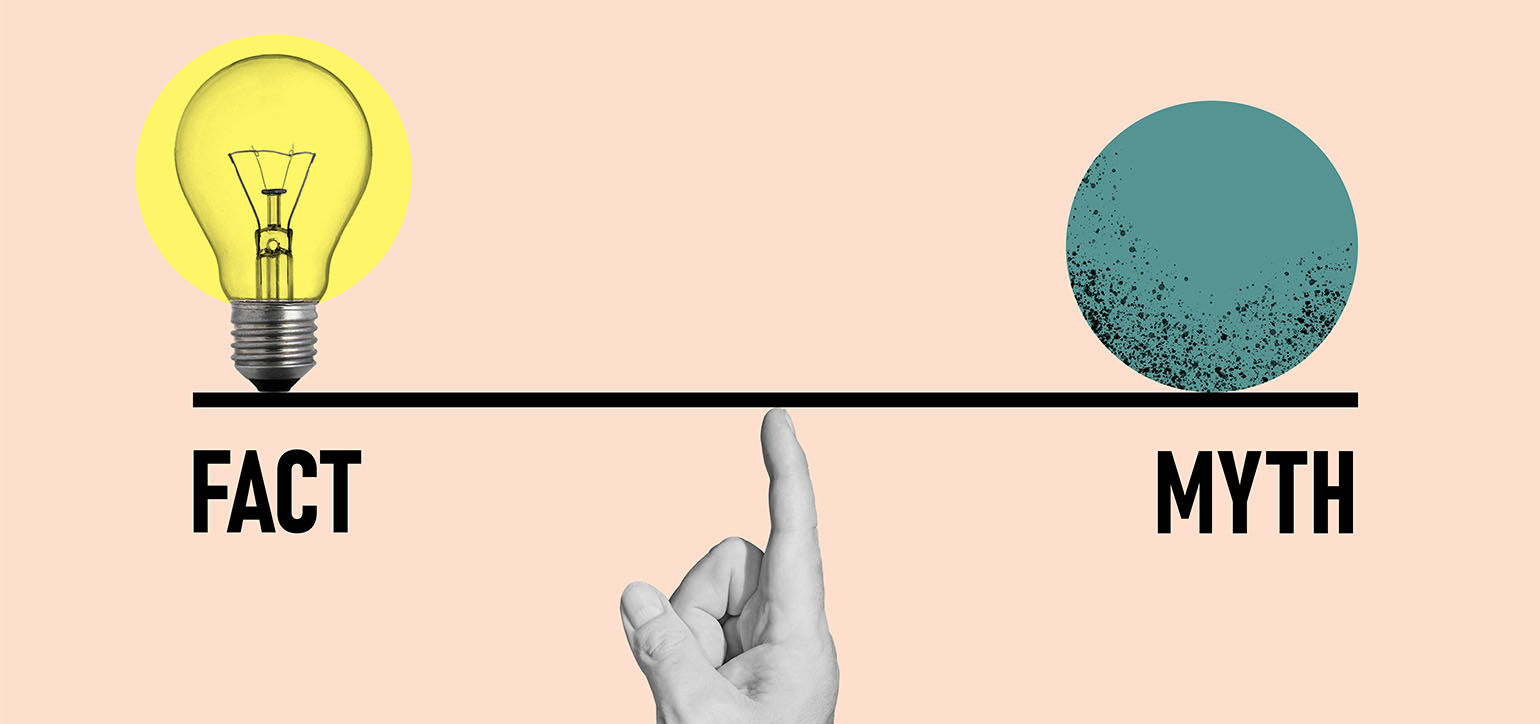Mortgages are complicated enough. You don’t need a whole host of mortgage myths and incorrect facts to make things even harder. This is why our expert mortgage advisers have rounded up the most common mortgage myths and debunked them with real facts. Read on to brush up on your mortgage knowledge.
Myth 1: You need a perfect credit score to get a mortgage
Lenders consider your credit history when assessing your mortgage application. This is to understand how you have managed debt repayments and finances in the past, which is an indicator of your commitment to credit and mortgage repayments in the future. Here are few things that can help you get mortgage without credit:
- Show lenders that you can be responsible by meeting your regular payments, for example utility bills, credit card payments and other financial commitments.
- Reduce your spending, try keeping your monthly outgoings consistent and have money left over every month.
- If you have a good explanation for financial difficulties in the past, consider adding a note of correction to your report for lenders to see.
- Have a guarantor ready to vouch for you, typically a parent or an older relative, to reassure monthly payments will be covered if you can’t keep up with them.
- Make sure you’re not aiming for a property that is way out of your pocket, you need to be able to keep up with payments.
Myth 2: You must have a large deposit to buy a home
Even though in 2022, the average price of a home in the UK has risen to about £300,000, a 13% increase year over year and now need an average deposit of £60,000, which is 21% of the home's price and 8% more than in 2021. But that’s not always the requirement.
The times of large deposits are in the past. Today, the majority of people don't have the luxury of saving 20% or more to buy a property. Lenders and the government have incentives to help buyers use various mortgage deals for first charge mortgages and government schemes to purchase their first home with as little as a 5% deposit. If you’re looking to secure such deal speak with our mortgage advisers for more details.
Myth 3: Fixed-rate mortgages are always better than variable-rate mortgages
When it comes to mortgages, there is no definitive answer on whether fixed-rate or variable-rate is better. The best mortgage should be determined on the current and projected economic conditions, as well as your personal situation, considering your needs, preferences and long-term financial goals.
Myth 4: Mortgage pre-approval guarantees loan approval
A mortgage pre-approval never provides a 100% guarantee that the same mortgage deal will be offered and approved. The pre-approval process is when a lender tells you how much you’re likely to be approved to borrow as part of a mortgage with them, which can be used to help you set expectations in the property market and make realistic offers.
Myth 5: You should always choose the mortgage with the lowest interest rate
When comparing mortgage deals, the interest rate offered is a significant consideration. However, the lowest interest rate isn’t always the best mortgage for you.
For example, a mortgage with a higher interest rate but an offset account could actually be cheaper for someone with considerable savings compared to a mortgage with a lower interest rate but no offset account facility.
Myth 6: Refinancing is always a money-saving option
Refinancing, also known as remortgaging, is when you swap your existing mortgage for a new one. This is typically completed to save money on interest repayments. However, you might not always save money by refinancing because you might need to pay early repayment charges and other fees as part of the remortgage.
Myth 7: Mortgage brokers are unnecessary and costly
Mortgage advisers, like us, can help you choose the most suitable mortgage types and sometimes ensure you save money. We can help search for the most advantageous mortgage deals for first charge mortgages, and we have industry connections and relationships, which allows us to assist in discussions with the lenders. Advisers are usually remunerated by the lender, so the service doesn’t necessarily cost more.
Debunked
Buying a property and applying for a mortgage can be a complex process with many intricacies to consider. This has led to many misconceptions about mortgages, including the aforementioned myths. For clarity and a personalised understanding of mortgage options, don’t hesitate to book a consultation with our trusted mortgage experts.
YOUR HOME MAY BE REPOSSESSED IF YOU DO NOT KEEP UP REPAYMENTS ON YOUR MORTGAGE.




